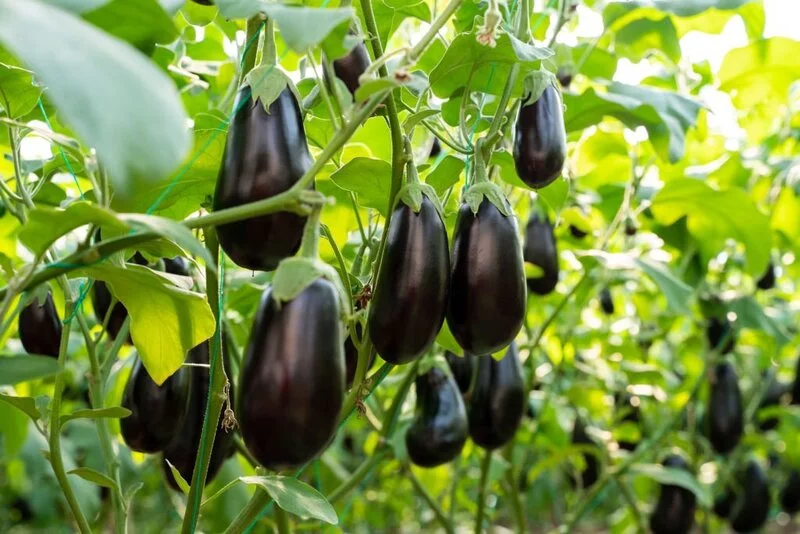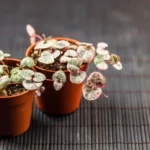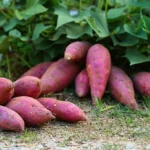Calling all eggplant aficionados! These shiny, purple beauties are a staple in many gardens and kitchens, thanks to their versatility and distinctive flavor. But did you know that your eggplants could be picky about their garden neighbors? It’s true! As with humans, some plants get along better with certain companions than others. In this article, we’ll delve into the world of eggplants and their fussiness about their plant buddies.
- Long, narrow purplish-black fruit
- Produces heavily until fall frost
- Thin, mild skins and Sweet Succulent flavor
- Excellent for grilling, roasting, stir-fries
- Good container plant
The Concept of Companion Planting
Let’s start by understanding companion planting, a concept as heartwarming as it sounds. In the garden world, companion planting is like setting up your plants on successful playdates. It’s the practice of growing certain plants near each other because they help each other in some way.
Think of it like this: Some plants are best buddies. They help each other grow, ward off pests, or even improve each other’s flavor. But others? Well, they’re more like frenemies. They compete for the same resources or attract the wrong kind of bugs. These not-so-friendly pairs can hinder each other’s growth.
Understanding these plant relationships can help you create a harmonious and fruitful garden. Now, let’s uncover which plants your eggplants would rather not hang out with!
Incompatible Plants with Eggplants
Just like people, plants can be affected by the company they keep. Some plants, when grown together, can compete for resources, attract pests, or stunt each other’s growth. These are often termed “incompatible” or “antagonistic” plants. They’re like the garden’s version of squabbling siblings who are better off given their own space.
In the case of eggplants, there are a few plants that can hinder their growth or increase the likelihood of disease. Learning who these troublemakers are can help you plan your garden for a successful eggplant season.
List of Plants Not to Grow with Eggplants
So, which plants should not share a bed with your eggplants? Here’s a quick list:
- Fennel: This aromatic herb is known to be a bad neighbor for most plants, and eggplants are no exception. Fennel has a tendency to exude substances that can inhibit the growth of other plants.
- Potatoes: Potatoes and eggplants belong to the same plant family (nightshade) and are susceptible to similar diseases and pests. Planting them together can lead to a spread of these issues.
- Other nightshade family plants: Similar to potatoes, other nightshade plants like tomatoes and peppers can invite the same pests and diseases. It’s best to keep some distance between them and your eggplants.
- Melons: While not directly harmful to each other, melons and eggplants both need plenty of space to grow and can end up competing for nutrients and water.
Remember, this doesn’t mean you can’t have these plants in your garden. They just shouldn’t be right next to your eggplants. Giving everyone their own space can result in a happier and more productive garden!
Tips for Successful Eggplant Cultivation
Now that we’ve talked about what not to do, let’s focus on some positive actions that can lead to a bumper eggplant harvest:
- Plant with good companions: Some plants can be beneficial neighbors for your eggplants. Marigolds, for example, are known to repel harmful nematodes. Beans can fix nitrogen in the soil, which eggplants love.
- Rotate crops: It’s a good practice to change the location of your eggplants every season. This helps prevent the build-up of diseases and pests that love eggplants.
- Enrich your soil: Eggplants love rich, well-draining soil. Before planting, enrich your soil with compost or aged manure to give your eggplants a nutrient boost.
- Water well: Keep the soil consistently moist but not soggy. Eggplants, like their nightshade siblings, don’t appreciate waterlogged soil.
- 🌿 It’s All Here: Delight family and friends, or treat yourself, this herb growing kit has everything you’re going to need to start a rewarding herb garden.
- 👍 We’ve Got Your Back: This indoor herb garden kit includes detailed step by step instructions walking you through the setup process, QR codes link to additional information and content, we run a private Facebook group for all your gardening questions and knowledge, and in the unlikely event that things still don’t work out we will refund or replace this product at any time (even if Amazon’s return window is closed).
- 👩🌾 Put Nature On Your Side: includes premium herb seed cultivars that have been selected for their suitability for indoor and urban gardening.
- 🎁 Perfect Gift Idea for Gardener or Chef: Includes a decorative windowsill planter and gorgeous packaging making this the perfect gift for gardeners or chefs, or anyone who wants to be either!
- 🙌 Start Growing Today: The gorgeous timber planter box is equally at home in your living room, kitchen or window. Produced from sustainably sourced timber, its both practical and re-usable.
Conclusion
Growing eggplants can be a rewarding endeavor, especially when you bite into that juicy, homegrown goodness. By understanding the do’s and don’ts of planting, you can help your eggplants thrive and avoid potential pitfalls.
Remember, plants, just like people, have their likes and dislikes. Paying attention to these preferences can help you create a harmonious, productive garden. So, the next time you’re planting eggplants, consider their choice of company. After all, good neighbors can make a world of difference, even in the garden!





